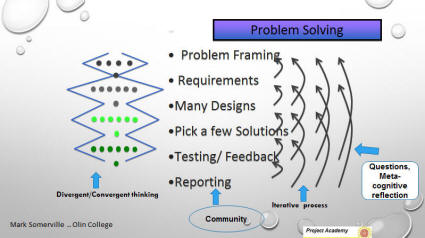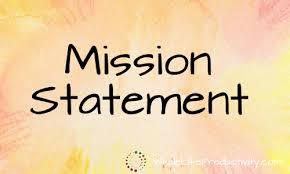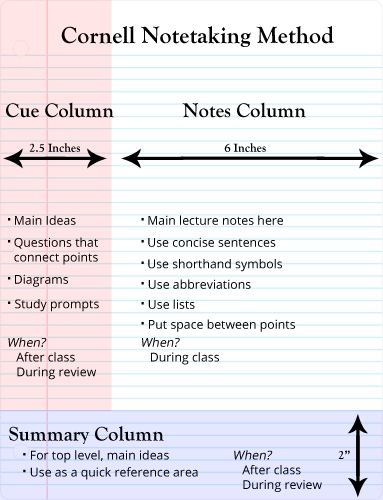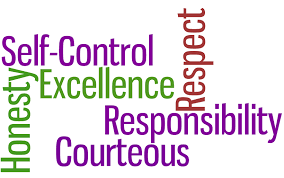Have a
question or comment?
|
|
|
What we Honor in a Nation
will be developed there ...
Plato |

Billw@projectAcademy.org |
| |
|
|
Thinking Technicians 
Developing people for the new
economy |
 |
Project Overview
Need
- Understanding remote
communication technology
- Thinking skills
- Supply-chain innovation
- Process management
- Distribution
infrastructure
- Customer focus
- Digital tools
|
- The world labor
movement is going thru a large disruption due to the
Corona Virus outbreak with people out of work.
- Countries need to
increase the skills of their work force to handle
work levels that support critical process and
thinking skills needed by companies.
- Business will need
people who understand innovative practices to help
companies recover during and after the pandemic is
over.
- System thinking to
create strong customer service and the ability of bringing people together for
learning and training.
- New work models
based on organization use of AL, Analytics, IOT and
Robotics
|
|
Opportunity |
To support companies to
create "Smart Creature's" the term Google used for
innovative employees This will be an on-line
program that teaches the life-skills that companies in
in this level of their employees. These employees will
be a multiplying factor for existing levels of
personnel. Bring corporations & employees together with
an improved culture and value system.
|
| Next
Steps |
- Create a board of
advisors to develop the concept and get feedback
from corporations
- Continue to finish
the curriculum based on the project academy's design
- Developed funding
sources for this concept
- Role out concept
(Marketing) to potential trainees and corporations
and get feedback
- Develop
relationships with on-line tool companies to use to
train people
- Set-up a program to
test and update the process; get feedback from
people and corporations.
|
| Outcomes
|
- Be seen as a leader
in education for career readiness' in 3 years
- Be welcomed in the
community as adding value within 3 years
- Create a recognized
process that fosters a learning culture in students
by the second year
|
|
|
Vision |
Create an organization over the next three (3)
years that achieves a benefit to society and skill learning for
youth by creating a training organization that facilitates Skill
learning for College & Career readiness process.
Our
organization will provide work space and tools for its employees
that will create an excellent culture and team work that will be
viewed by industry as a model.
Our
students will support and assist the community .
We hope to become an educational institution that
spreads across the USA |
|
 |
-
Get potential students excited about
learning (life-long learners).
Quickly build Thinking
Technicians needed in the market place.
-
Have
students build the reasoning skills to manage in today’s society and begin
to build a set of skills to use in multiple careers.
-
Understand
that problems are opportunities. The bigger the problem,
the bigger the opportunity.
-
Have
students better prepared to be better citizens.
|
| |
| Skills:
|
|
Sacred thoughts |
Elements |
|
Wisdom:
good
decisions and taking the path that
provides value to all (society) |
Thinking skills (creative, critical, system),
SEL learning, Decision making, Reflection,
Innovation |
|
Community:
People and relationships count |
Listening skills, communication skills,
teamwork, Interpersonal skills, Relationship,
Measurements |
|
Social justice:
leaving the world a better place than you found
it |
Problem solving skills, positive outlook,
Curiosity, Process skills, Executive functions
|
|
Purpose:
Sense of direction that you achieve, the goals
you set |
Put first things first, Pro-active outlook,
Begin with the ends in mind, and Win-Win for
all, Time-management, Project planning,
Trust, Honesty |
|
|
| Student Engagement: Have a
discuss about the following;
Why do you think its
important to learn life-skills? What key words would they
use to describe them? Have you use them in a sports team?
|
Student centered documents |
|
Ask the
students:
-
What class they had
that made them feel good about learning?
-
What was it about it
that did it for them?
-
If they have no
answer, what teacher did they have that did not help them
and why?
-
Why do they think it
is important for them to be good learners?
-
Identify your
highest hopes and deepest fears in life?
|
Recognize that you own your learning and are responsible
for its success
Think of yourself as in your own business of learning,.
What are you going to do to be successful?
“Students need to change their disposition toward
school away from being directed by someone else to an
attitude of working for your-self—agency, self-discipline,
initiative and risk-taking are all important on the
job.”
|
|
Students should use a to-do list, develop a personal
learning plan and create a portfolio of their best work |
|
They
learn to self-manage their time, reflect on how things
are going again the plan and how to check-in when they
know they need support. |

Cornell System |
| |
| Our commitment to the
student: |
|
We are
firm on expectations and principles but flexible on
pathways give students time to engage deeply and
opportunities to succeed and fail, and support the
development of self-direction. |
|
High
engagement schools start from a different
conception—knowledge co-creation and active production.
They design a very different learner experience and
support it with a student-centered culture and
opportunities to improve self-regulation, initiative and
persistence—all key to self-directed learning. |
|
Project Academy Culture Statement |
|
Overview Presentation:
Engineering Mind-set (Thought concept for the
program ) |
| Role of
the facilitator
Emphasis on building learning skills by facilitating
meta-cognitive questions during the process |
The definition of facilitate is "to make easy" or "ease a
process." What a facilitator does is plan, guide, provide
feedback and manage a group event to ensure that the group's
objectives are met effectively, with clear thinking, good
participation and full buy-in from everyone who is involved. |
|
Flipped Learning |
Flipped Learning
is a pedagogical approach in which direct
instruction moves from the group learning space
to the individual learning space, and the
resulting group space is transformed into a
dynamic, interactive learning environment where
the educator guides students as they apply
concepts and engage creatively in the subject
matter. |
Discussion of
Life-Skills
Boost your career
Preparing our students for the 21st
century society and careers
The ultimise list of skills
|
Everyone
knows that employers look at qualifications and
work experience on your CV, but what you may not
know is that they also look for what are known
as ‘soft skills’, and these can sometimes be
more valuable than what you studied at school.
They relate to your attitude and how you
approach certain situations in the workplace.
|
|
|
Program (PBL)
| Professional
Development (PD) |
|
|
Overall review document |
File |
|
Thinking skills & Emotional skills
|
File |
|
Good review of PBL elements |
File |
| Supportive
Manuals / Handbooks |
|
|
Overview Training plan for each section
This learning concept is a combination of on-line web based
self-learning (Flip process), collaborative web team software
and a facilitator to tie it all together. The basic process is
learning about self, being part of a team, problems solving,
presenting your conclusion to the community and reflection.
Life skills are infused during this process.
The instructional ingredients of success, the sites found,
-
include short videos of six minutes or less,
-
interspersed with interactive drills and tests;
-
online forums where students share problems and suggestions;
-
and online mentoring and tutoring.
|
|
Detail project Plans
|
The basic project for the students: |
|
The learning can be broken into major parts
|
0.0 |
Start the class
by first breaking up the class into teams of 4-5
people. The learning will progress in
order of starting at unit 1.0 thru 9.0.
The team members are to read the
FLIP
pages prior to the class. The goal is to
get the students to begin self-learning.
When looking at the FLIP learning, it is best to
have a learning buddy studying with you.
Peer Learning
|
|
1.0 |
Ice
Breaker ...
Marshmallow project (Begin our thoughts
on the problem to be solved)
Brain Plasticity (Mindset)
|
| 2.0 |
Your
strengths & Attitude
Valuing yourself,
attitude, confidence, Social & Emotional
learning, your goals
FLIP
About You
|
|
3.0 |
Forming teams and setting community values,
norms
see forming team-work-2 handbook above
Flip
learning page |
| 4.0 |
Tools for Corporate Design
Process, Customer
focus, Measurements, Communication, Questioning
FLIP
Tools
Questioning |
|
5.0 |
a)
Picking a project
... b)
Requirements & Measurements
Flip
Problem framing, Design
|
|
6.0 |
Problem solving
process...
another design process
Circular design
Flip:
Problem-Solving |
| 7.0 |
Testing:
Testing and Reflection
FLIP:
Testing |
|
8.0 |
Public reporting
and feedback
FLIP:
Reporting
|
| 9.0 |
Follow-up refresher meeting's |
· `` |
- During each of the sections,
Life-Skills are cognitively infused while the
students are doing their tasks
-
Life-skills versus learning project elements
|
|
|
 Hire
“whole-brained” talent. Today’s in-house roles require a
broader skill set, with a balanced mix of left-
and right-brain skills. This means, for instance,
content producers and experience designers who are
comfortable using data, and data-driven marketers who
are willing to hink outside the box and move closer to
consumers. McKinsey
research shows that companies able to
successfully integrate data and creativity grow their
revenues at twice the average rate of S&P 500 companies.
Most importantly, modern marketing organizations don’t
need managers to manage people; they need people to
manage output and track performance. Hire
“whole-brained” talent. Today’s in-house roles require a
broader skill set, with a balanced mix of left-
and right-brain skills. This means, for instance,
content producers and experience designers who are
comfortable using data, and data-driven marketers who
are willing to hink outside the box and move closer to
consumers. McKinsey
research shows that companies able to
successfully integrate data and creativity grow their
revenues at twice the average rate of S&P 500 companies.
Most importantly, modern marketing organizations don’t
need managers to manage people; they need people to
manage output and track performance. |
Project data: |
| |
| Overview slides
|
File (PDF) |
| Schedule overview
Approximately 10 one hour
sessions
|
|
| Tenets
of the organization |
File |
|
Outcomes & Uniqueness' |
File |
| |
Tools/Quick notes:
|
Web site for links to Life-Skills
descriptions |
Link |
|
Team members questions to themselves
|
What do I bring to the team?
2. What are our commitments to one another? 3. What differences
exist between us? 4. How will we operate? 5. How will we know we
are succeeding? |
|
Assessment/Rubrics |
File |
|
Questions & learning |
File |
| Picking
the problem |
File |
| Planning
& schedule |
File Getting set-up to do the project |
| Elevator
pitch |
File Short presentation of key items that
you did |
| Learning Process |
File |
|
Brain
Plasticity |
File |
|
Thinking skills
|
Creative thinking |
|
Critical thinking |
|
Questioning |
|
Meta-cognitive thinking |
|
Reflection (feedback) |
|
|
File
Maintain the state of doubt and to carry on
systematic and protracted inquiry --- these are the essentials
of thinking |
 |
|
| Learning targets
|
File
Learning targets are
short term goals or statements |
| Self-Reflection of
the project |
File |
| Benefits of the
process |
File
|
| Preparing for the
presentation check-sheet |
File |
| Scamper |
File
Coming up with ways to find new ideas |
| Links from home page of Project
Academy
the mental and moral qualities distinctive to an individual |
|
|
|
|
Interesting web sites; |
|
It is the policy of Project Academy not to discriminate on the
basis of race, gender, religion, national origin, color,
homelessness, sexual orientation, gender identity, age or
disability in its education programs, services, activities, or
employment practices. |





 Hire
“whole-brained” talent. Today’s in-house roles require a
broader skill set, with a balanced mix of left-
and right-brain skills. This means, for instance,
content producers and experience designers who are
comfortable using data, and data-driven marketers who
are willing to hink outside the box and move closer to
consumers.
Hire
“whole-brained” talent. Today’s in-house roles require a
broader skill set, with a balanced mix of left-
and right-brain skills. This means, for instance,
content producers and experience designers who are
comfortable using data, and data-driven marketers who
are willing to hink outside the box and move closer to
consumers. 
